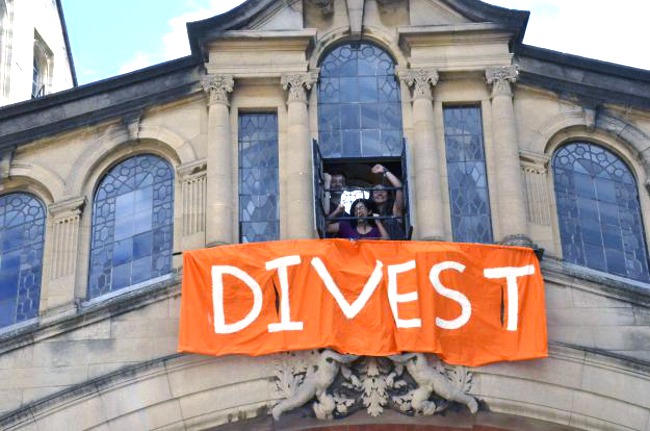With crude oil sitting at $40/barrel, many oil industry investments are suffering. None more so than the capital intensive tar sand projects in Alberta, Canada. Oil majors, however, have usually planned scenarios looking up to 30 years ahead. Multi-billion dollar projects have commitment to ride through the tough times and operational projects have a huge cost in decommissioning and re-starting, and thus gain a silent momentum, despite cutting jobs across the sector.

The natural beauty of Alberta, Canada.
Tar or oil sand is a naturally occurring mixture of sand, clay, minerals and bitumen. Vast areas of trees and soil (called ‘overburden’ by the industry) need to be removed before this glutinous sand is accessed. Bitumen contains long chain carbon molecules and needs a lot of pre-treating before it ends up in your car engine, thereby making it one of the dirtiest and most carbon-intensive fuels on the planet.
Currently the tar sands industry has greenhouse gas emissions greater than New Zealand and Kenya combined, and if all the bitumen could be extracted and turned to oil, another 240 billion tons of carbon would be added to the atmosphere. This by itself would raise the planet’s temperature by 0.4 C. This increase, from one province of Canada, cannot be afforded.

Extraction of tar sands is a vast operation
This is simple arithmetic, yet where is the incentive for this project to stop operating? Even with oil prices at record lows, long term planning by companies is sure to yield a profit. It is in these cases that people bring a myopic view to the market. But let us not point a lazy finger at the market, but rather at people’s intentions which are not connected to a broader view of life on this planet.
What can be done to counter this behaviour and keep it in the ground?
A carbon tax is one measure, and has been argued for previously by myself. A carbon tax will be introduced at $20 per ton of CO2 for Albert in 2017, but that is too low to be a significant short term disincentive. It will rise to $30 in 2018, with the money being spent on pollution reducing measures. Transparency will be needed with this spending. It is a step in the right direction, but at the current levels it will not keep this oil in the ground.
Two other methods of dissuasion need considering, and these are discussed by Naomi Klein in her book on climate change called This Changes Everything. They broadly fall under community action.
The first one is examining land rights as many of the areas are inhabited by indigenous Canadian communities. These rights are real and carry weight. These communities have been affected by toxic wastewater discharged into rivers – one study indicated a 30 % rise in cancers in the community of Fort Chipewyan from 1995 to 2006. Caribou herds have also been decimated – as much as 75 % since 1998 in the area of the Beaver Lake Cree First Nation. The argument here is that no previously agreed treaty gave the Canadian government licence to destroy the indigenous communities’ environment.

Water resources are being contaminated (Athabasca river)
Secondly, one can target the money. These projects require billions of dollars of shareholders’ money, so one can apply pressure to shareholders via moral argument to divest. Students have been pro-active here, with the fight still ongoing with the Harvard Endowment Fund, for example. This method of action has also been championed by 350.org, the organisation spearheaded by Bill McKibben. In London last year, student pressure led to the University of London’s School of African Studies (SOAS) announcing their commitment to fossil fuel divestment of their £32m fund. These victories are small considering fossil fuel companies invested $670 bn in exploration of new reserves in 2013, but the noise is growing louder.

Pressure to divest from Oxford University students
What is asked for in keeping carbon in the ground, is not only the arguments of science and arithmetic e.g. the Bank of England governor Mark Carney at the 2015 World Bank seminar stating “The vast majority of reserves are unburnable” if global temperatures are to be limited to below a 2 °C rise. What is asked for is that that we remember what has real value, before it is too late. This is perhaps said best by the Cree proverb “When the last tree has been cut down, the last fish caught, the last river poisoned, only then will we realise we cannot eat money”.
This article can also be found in SALT magazine.


